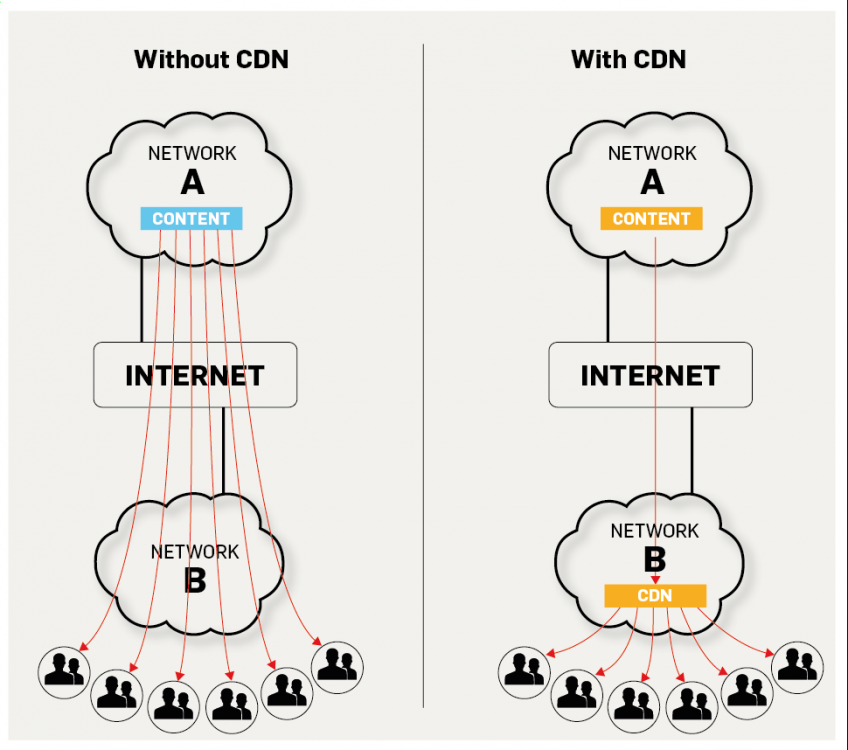Website performance is of paramount importance these days. With dwindling attention spans and super swift competition everywhere, it’s vital your site runs smoothly and quickly – regardless of traffic levels.
According to those scientist types, humans now have less attention span than goldfish. And with recent figures suggesting we’ll abandon a shopping site in just three seconds, site speed is obviously a vital factor in your business’ success or failure. To put it simply, if you own an ecommerce site and it isn’t fast enough, you’re not making as much money as you could be.
Stop your site from slowing down
A potential key to ensuring your site is as speedy as can be, could be adding a CDN package to your hosting, but what exactly is a CDN and how does it improve your site’s performance?
To fully understand the advantages of CDN (that’s Content Delivery Network for the uninitiated) let’s look at the traditional way in which a websites information is sent to an end user’s PC.
Say you have a homepage with a large image on it (as is the current design trend) and this is held on a server in the UK. Traditionally users from all over the world would be using the internet to contact that (UK based) server to retrieve the homepage – with its big hero image.
Meaning that if a user wants to visit the page in New Zealand, all of this information has to travel an awful long way, affecting performance, speed and in turn user experience. A CDN remedies this by holding some of the page content (in this example: the image) on a global network of servers, meaning the content is being retrieved from a server that is geographically closer to the end user – which speeds everything up because it’s basic physics that the further distance something has to travel the longer it takes to get there (when travelling at the same speed) and these physics apply to data in the same way they would to a car on the motorway. Making CDN a simple but really very clever solution.
It’s not just about distance though, a CDN aids speed by lowering the amount of information having to pass through the ‘funnel’ of one server at a time. Say our kiwi gentleman from the previous example – using your site on a UK server, has a few hundred likeminded friends using the website at the same time. Traditionally the one server is serving all of the sites information to all of these users at once, which can cause bottle necking and slow the whole process down for everyone.
With a CDN package, the strain on your server is alleviated by the global network of CDN servers, meaning bottle necks are avoided by reducing the amount of information your home server is having to send. This results in a faster website experience for your customers and prevents you losing potential sales to impatience. Win.
Do you need it?
Now, day to day your site probably runs fairly well without a CDN package and you might be thinking why do I need it? This is because a CDN really comes into its own at times when your server is experiencing high volumes of traffic – times like Christmas for example. To give your business an advantage and ensure that it will be able to handle the Christmas rush, a CDN could be the difference between a busy day on the site where you make triple (or more) than a normal day or your site going down and missing out on all of the extra potential customers.
Here’s the rub though, this is something e-commerce owners need to be proactive with, it’s no use waiting for black Friday to come along and then think ‘ah my site’s struggling, I’ll get a CDN package’ as it’ll be too late. If you’re expecting extra traffic over Christmas (or any other time of year) the time to act is now.
To see an example of how CDN can aid a business during peak times, view our Hosting Animation below.


